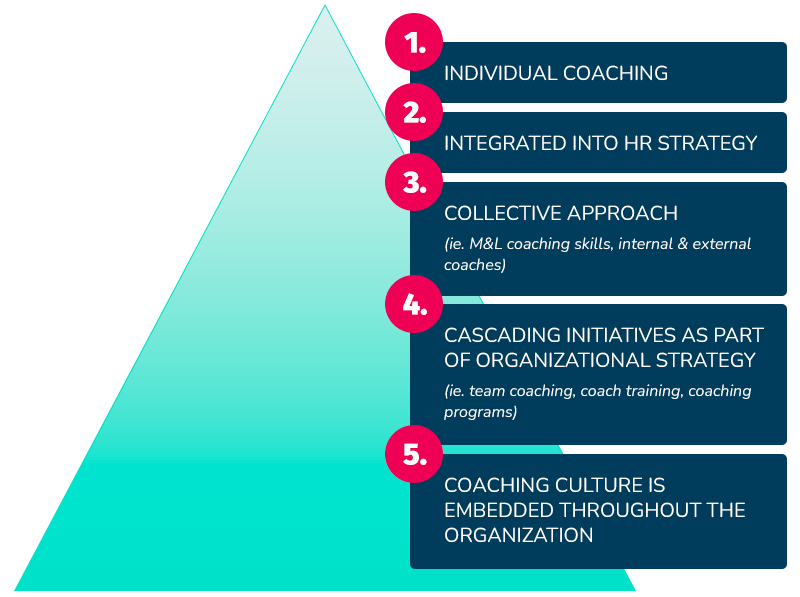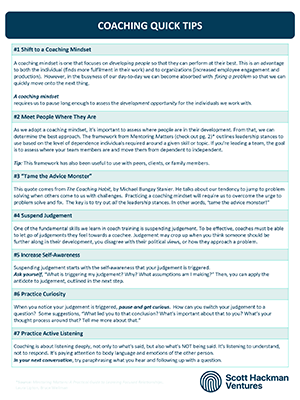There is a growing trend in organizations across industries to intentionally build coaching cultures. Why? It’s good for business.
A study by the International Coaching Federation (ICF) and Human Capital Institute (HCI) found companies with a coaching culture saw 13% higher revenues than industry peers who did not.
Additional studies show coaching has a high return on investment because of the positive correlation to improvements in retention, engagement, and productivity.
So, what is a coaching culture, exactly? We find it helpful to first define what coaching is.
What is coaching?
At SHV, we relate the coaching process to climbing Mt. Everest. The coachee (the adventurer) hires a coach (the sherpa) to guide them in reaching their specific goals (their Mt. Everest). Both parties have a role and responsibility: the coach guides the process and the coachee does the necessary work to reach the top.
Here’s what some accrediting bodies most well known in the coaching sphere have to say about coaching:
- Coaching is a professionally guided process that inspires clients to maximize their personal and professional potential. It is a structured, purposeful, and transformational process, helping clients to see and test alternative ways for improvement of competence, decision making, and enhancement of quality of life. – EUROPEAN MENTORING AND COACHING COUNCIL (EMCC)
- Partnering with clients in a thought-provoking and creative process that inspires them to maximize their personal and professional potential. – INTERNATIONAL COACHING FEDERATION (ICF)
Why is coaching such a powerful tool?
Studies around coaching found it has a positive effect on individual outcomes around well-being, coping, work attitude, goal-direction, and self-regulation. Individuals who receive coaching are more likely to stick to goals and reach them more quickly.
“Coaching is unlocking a person’s potential to maximize their growth.”
John Whitmore
What is a coaching culture?
Organizations create a coaching culture when they embed coaching practices and philosophies throughout all levels of their organization. It requires a holistic and multi-modal approach with the goal of effective and regular implementation.
The chart below outlines the typical stages of a coaching culture, starting with individual coaching:

Where do I start with creating a coaching culture?
Building a coaching culture at work is a complex process because it requires an investment of time, buy-in on the value of coaching, and resources to hire coaches or train employees. We’d love to chat about where your organization falls and discuss potential next steps for you. You can book a discovery call or contact us.
Coaching Quick Tips
We pulled together some coaching tips that anyone can leverage to influence a coaching culture, regardless of where their organization falls in the stages.






